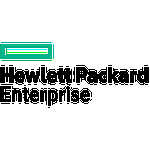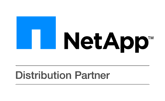Storage Architectures Research
-
Examining the Leading All-flash Array Vendors' Offerings
Sponsored by: AvnetThis SearchStorage.com pocket guide will assist you in not only selecting an all-flash array vendor, but also illustrates how to choose an AFA based on an examination of three AFA product categories— high-end enterprise arrays, midrange systems, and NAS appliances.
-
Workload Optimization Tips for Hyper-converged Technologies
Sponsored by: Hewlett Packard EnterpriseInside this expert guide, Clive Longbottom, co-founder and service director at Quocirca, identifies which application workloads are best suited for HCI—like ROBO and VDI—and explains why. Read on to gain cautionary advice, as well, with regards to HCI being a main component of cloud platforms.
-
HCI Appliances Embrace Containers and More Flexible Pricing
Sponsored by: Hewlett Packard EnterpriseA handful of startups and top-tier players have introduced container-driven bundles that could determine a new delivery and support approach for hyper-converged infrastructure (HCI). Read this expert guide to see highlighted several HCI appliances built for containerized apps that should be on your radar.
-
Ten Reasons to Consider a Hyper-converged Data Center
Sponsored by: Hewlett Packard EnterpriseDownload this guide as our experts reveal the top 10 reasons to consider a hyper-converged data center, including its suitability for scale-out VDI workloads, ROBO support, hardware refresh, and more. Inside, you'll discover which workloads apply to your needs, and determine if HCI should be implemented.
-
Converged vs. Hyper-converged Infrastructure: The Bottom Line
Sponsored by: Pure StorageIn this guide, contributors from SearchConvergedInfrastructure lay out the differences between converged and hyper-converged infrastructure storage. Read on to finally get the bottom line from our experts on the divergence between CI and HCI storage, with specific appliance examples.
-
How Hyper-converged Infrastructure Gives Data Centers a Boost
Sponsored by: Pure StorageDownload this expert guide to view the trends and vendors shaping HCI and its role in the software-defined data center (SDDC). You'll also gain advice on implementing HCI, regardless of whether your apps are traditional, big data- or cloud-based.
-
New Flash Use Cases Identified and What to Do about the NAND Flash Shortage
Sponsored by: SilkBecause we're in the midst of a worldwide NAND flash shortage, will once-lowered costs now rise? Download this guide as our editors evaluate the impact the NAND flash shortage has on the cost of SSDs (and how that compares per gigabyte to HDDs), as well as new use cases like flash as RAM.
-
Kaminario's CEO Identifies a Flash Market Shift, Illustrates the Role of the K2 Array
Sponsored by: SilkDownload this guide to get a technical breakdown from our editors on Kaminario's K2 array, including it data compression improvements (ratio of 4:1) and compatibility with NVMe. Then, you'll access a Q&A with Kaminario's CEO Dani Golan, in which he identifies how the flash market is shifting.
-
All-flash Array Market Advances Outpace Demand, Create Opportunities
Sponsored by: SilkIn this guide, our experts deconstruct the high-density all-flash disruption. Additionally, you'll access an article by George Crump, President of Storage Switzerland, in which he illustrates the state of this year's flash storage systems, and talks in detail about NVMe, as well as flash DIMM.
-
Building an All-flash Array Business Case
Sponsored by: SilkUse this guide as a means to building your all-flash array business case by characterizing your apps and their requirements. Inside, you'll learn how to construct your AFA case, while reviewing five factors to consider before making your purchase.
-
Storage Virtualization: The Big Picture
Sponsored by: Lenovo and IntelClick inside this expert-guide to learn how, as software-defined storage systems mature, the line between storage and data-processing platform is eroding, and why you should remain cautious about new technologies for the time being.
-
Assessing Hyper-converged: Products, Scalability, and Ecosystem Support
Sponsored by: Lenovo and IntelFrom the experts at SearchConvergedInfrastructure.com, this guide assesses several types of HCI architectures based on featured capabilities—including cost model, data protection, and resiliency. Read on to see the analysis, as well as to answer the burning question, "Why is the HCI definition so varied?"
-
Pure Storage CEO Assesses NVMe, Flash Storage Market
Sponsored by: Pure StorageIn this guide from the SearchStorage.com editors, senior news writer Garry Kranz sits down with Pure Storage CEO Scott Dietzen to assess the evolutionary cycle of NVMe flash, the likely timeline for its mainstream adoption, a glimpse into flash-based backup techniques, and more. Read on to stay in the NVMe loop.
-
SearchStorage Editors Examine the Leading All-flash Array Vendors
Sponsored by: Pure StorageIn this e-guide, we evaluate eight leading AFA vendors to let you decide which products best suit your organization. Read on as Logan Harbaugh, IT consultant and freelance reviewer with SearchStorage, breaks down how to select an AFA vendor based on functional specification, 3 essential purchasing considerations, and more.
-
Object Storage vs. Block vs. File: Differentiating New Techniques from Their Predecessors
Sponsored by: SanDisk CorporationObject storage is the hot new technology on everyone's lips, but is it really so different from traditional NAS and SAN arrays? This expert guide explores the key aspects that differentiate object storage from its predecessors. Then read up on when adopting an object storage system is a smart move, and more.
-
Differentiating All-flash Array Vendors from their Counterparts
Sponsored by: Western DigitalOur experts compiled this guide to determining the most suitable AFA vendor for your enterprise—ensuring you choose one that not only provides snapshots and thin provisioning, but also active-active controllers and replication, and QoS. Read on to also gain access to instruction for a three-phase AFA implementation.
-
Object Storage Architecture: Mitigating Complexity, Capacity, and Archival Concerns
Sponsored by: SanDisk CorporationThis expert resource serves as your full guide to object storage implementation, with cloud workload, sync-and-share, API-accessible storage, and more use cases examined. Download now to gain full access, learning how object storage maintains the unstructured data deluge, and view an object vs. file vs. block storage bake off.
-
George Crump Evaluates the State of Flash Storage Systems
Sponsored by: HPE and Intel®In this expert guide, George Crump outlines the state of flash storage systems, and demonstrates how to use NVMe and flash DIMM to proactively keep performance ahead of users' expectations. Read on as Crump also predicts the fate of HDDs, and explains how to keep pace by improving internal and external connectivity.
-
GDPR Developments Will Dominate Storage and Compliance in 2017
Sponsored by: Arrow + NetAppIn this expert guide, Storage Editor Antony Adshead and CEO of Vigitrust, Mathieu Gorge, discuss 2017's developments in the GDPR, as it pertains to regulatory compliance, and data backup. Read on to discover backup challenges associated with e-discovery, the evolution of data retention regulations, and more.
-
All-flash Storage Arrays: Are They Killing Hybrids?
Sponsored by: TechTarget StorageWhere there are instances when either all-flash or hybrid arrays work well—that is where the battle for dominance occurs. In this issue of Storage Handbook, our experts deconstruct the hybrid vs. AFA debate, digging into cost, network connectivity, and which arrays are more pertinent for primary storage workloads.
-
Storage Handbook: Get Hyped for Top Hyper-converged Technology Use Cases
Sponsored by: TechTarget Data CenterDownload your issue of Storage Handbook now to discover which workloads are best run on HCI—VDI and beyond—as well as which workloads to avoid, as you implement. Additionally, learn how to unlock the key to HCI success in SMBs, and more.
-
How Storage Is Catching Up with the DevOps Revolution
Sponsored by: Pure StorageIn this essential guide, discover why DevOps requirements are shifting how enterprises consume and deploy storage resources to a more-cloud focused approach. Download now to gain guidance on storage technologies most appropriate for Agile development, including VM-aware secondary storage, hyper-convergence, and more.
-
Simplifying Storage Allocations for Virtual Desktops
Sponsored by: Pure Storage"How can I simplify storage allocation for virtual desktops?" You asked the question, we have the answer. Read on to discover how to address storage allocation requirements of both the operating system and apps, and VDI user data, in this expert guide.
-
Storage Showdown: All-flash vs. Hybrid Arrays for Virtual Desktop Environments
Sponsored by: Pure StorageDownload this guide as Tom Fenton, Senior Validation Engineer at the Taneja Group, illustrates several critical factors to consider when deciding to use an all-flash or hybrid array in your virtual desktop environments. Here, you'll evaluate hybrid vs. all-flash on cost, ability access to cold data, compression and deduplication, and more.
-
Flash Storage Caching Boosts Application Performance—but Requires Balance
Sponsored by: Pure StorageUse this guide as a comprehensive resource for evaluating flash caching benefits, trade-offs, 3 main implementation models, and determine where to cache in order to leverage faster media and improve I/O performance.










